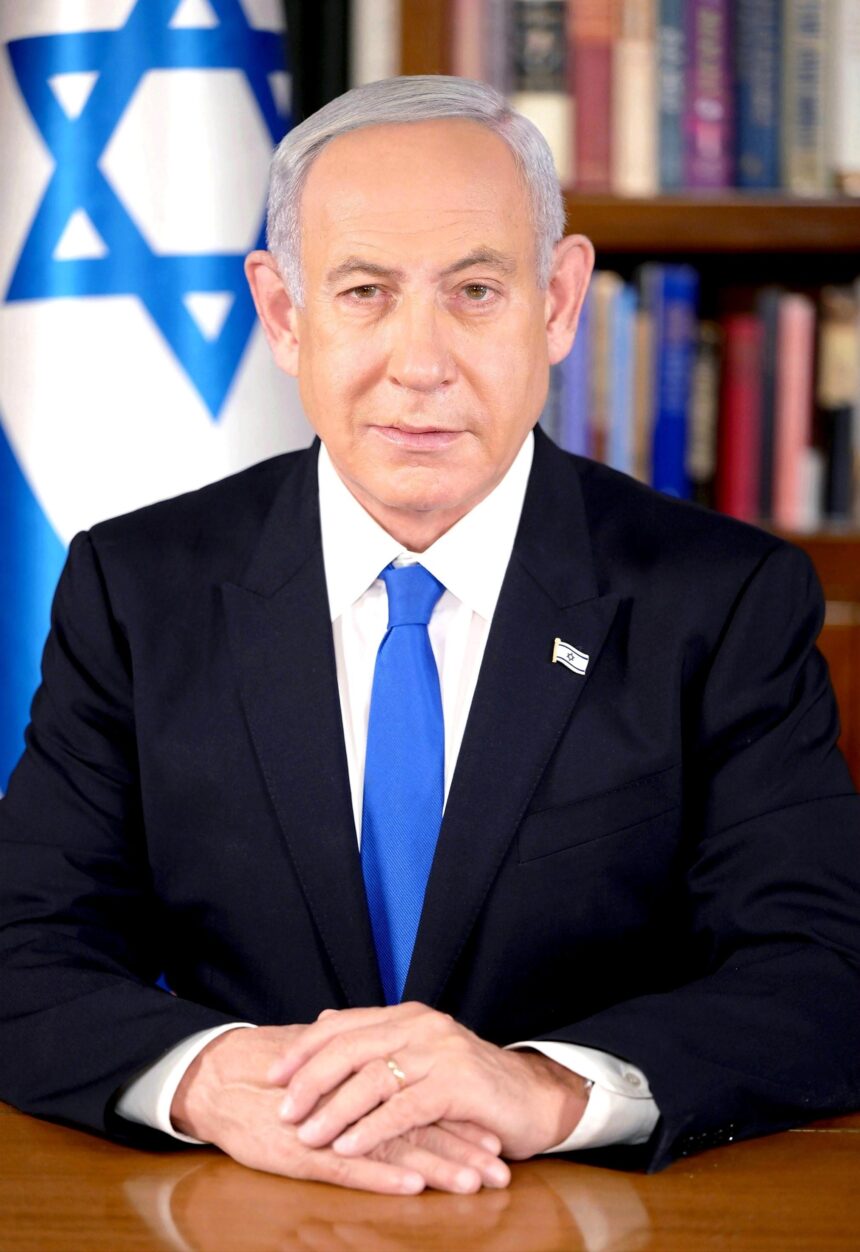Can Netanyahu Navigate the Path to Peace?
As the dynamics of the Middle East shift like the waves of its coastal waters, Israeli Prime Minister Benjamin Netanyahu stands at a pivotal juncture. Following years of intricate political strategies and controversial policies, the possibility of establishing enduring peace with the Palestinians—or making any significant progress in Israel’s long-standing conflicts—presents both a challenge and an opportunity for this seasoned leader. Known for his firm political tactics, Netanyahu now confronts a defining question that could reshape his legacy: can he adeptly manage diplomatic complexities without alienating his supporters and endangering his administration?
In a region steeped in historical grievances, any movement towards peace carries substantial risks; it could either solidify Netanyahu’s political standing or unravel the delicate coalition backing him. As discussions about normalization and potential compromises arise amidst changing alliances and external pressures, this article delves into Netanyahu’s leadership challenges in pursuit of peace while considering implications for Israeli society and regional stability.
The Intricate Dynamics of Israeli Politics and Peace Efforts
The current impasse within Israeli politics is characterized by a divided Knesset and fluctuating alliances, posing significant hurdles for Prime Minister Benjamin Netanyahu. Political strategies are often constrained by entrenched rivalries and regional tensions that complicate efforts to create a unified approach to peace. The opposition is not merely an assortment of parties; it represents a complex array of ideological divides ranging from staunch right-wing groups to more progressive factions. This diversity intensifies negotiation complexities, creating an environment where even minor missteps could lead to diminished support. Key elements influencing Netanyahu’s future include:
- Internal Conflicts: The cohesion within Netanyahu’s Likud party faces constant challenges from dissenting opinions and extreme demands.
- Global Expectations: Increasing calls from international leaders for renewed dialogue with Palestinian representatives add pressure on his administration.
- Civic Attitudes: Changing public sentiment—especially among younger Israelis who prioritize peaceful resolutions—challenges Netanyahu’s historically hardline position.
The intertwining nature of domestic politics with international diplomacy means that any progress towards peace may provoke backlash from various sectors within Israel. Recent negotiations have underscored both obstacles as well as faint hopes for compromise. As he navigates these turbulent waters, one must ponder whether he can sustain his political viability without compromising prospects for lasting peace. A recent survey highlights public attitudes toward negotiations:
| Demographic Group | % Supporting Peace Talks |
|---|---|
| Young Adults (18-24) | 68% |
| Mature Adults (25-44) | 52% |
This data not only reveals generational differences but also suggests that support among traditional bases may be more fragile than anticipated by Netanyahu. In this critical landscape where each decision holds weighty implications for both his career trajectory and potential pathways to peace, how effectively he adapts will be put to unprecedented tests.
Obstacles Facing Netanyahu’s Leadership Amidst Burgeoning Peace Efforts
The exploration of new avenues toward reconciliation places increasing pressure on Prime Minister Benjamin Netanyahu from multiple angles, complicating his leadership role further still. Shifting away from hardline positions towards engaging in dialogue has distanced some segments of his traditional base—particularly those aligned with nationalist ideologies.Main challenges include:
-
<
li>Erosion 1of support among nationalists who perceive compromise as treachery.
<
li >Rising internal dissent stemming from rival factions questioning both authority 1and vision.
<
li >Skepticism expressed by international allies regarding any sustainable initiatives launched underhis guidance . li >
Additionally ,the unpredictable geopolitical climate further complicates matters .Netanyahu’s endeavors extend beyond mere politics ; they carry profound implicationsforIsrael ‘s securityand social cohesion .While pursuingpeace agreements ,he must deftly navigate reactionsfromregional neighborsand global stakeholders alike .This scenario necessitates astute balancing acts ,as illustratedin therecent table below summarizing variouspeace initiatives alongwith their receptions : p >
| Criticismfromright-wingfactions,someapprovalfrommoderates | Losingvotertrustamongnationalists | / tr > |
| Potentialincreaseinviolencebyextremistgroups | / tr > tbody > |
Strategic Pathways: Navigating Domestic Challenges While Meeting Global Demands
Navigating through intricate domestic pressures presents formidable challengesforIsraeliPrimeMinisterBenjaminNetanyahu.His task involves strikingan equilibrium between these internal demandsand expectations emanating globally.Thegrowing polarizationwithinIsrael poses serious obstaclesforNetanyahu whose right-leaningcoalitionhas ignited considerable dissent.To ensure stability ,he must devise strategies resonantwithhisbase while avoiding alienationofaninternationalcommunitylargely advocatingforpeace.His approachmay entail : p >
- < strong >FosteringDialogue:< strong />Activelyengagingmoderatesacrossbothsidesofthedivideinordertoestablishunifiedfront.< / li >
- < strong >GradualCompromises:< strong />Proposingincrementalconcessionsleadingtopeacethatwon’talarmhisright-wingsupporters.< / li >
- < strong >PublicRelationsInitiatives:< strong />EnhancingIsrael ‘simageabroadtocounteractnarrativesthatdepicthisadministrationas obstructive top eace.< / li />
ul >The real test liesinaddressingglobaldemandsfordealingwiththeongoingconflict.Asworldleaderscallfortwo-statesolutions,N etanyahu’sgovernmentmustdemonstratevisibleprogressmeetingtheseexpectations.Current trajectoriescould involve : p >
< t h InternationalRequirement /thead Diplomaticengagementsincreased Tensionsrisewithincoalitionmemberships
/t rCreatelegislativebarriersagainstnewsettlements
/t rKickingoffjointeconomicprojects
/t r/table
Concluding Thoughts
As opportunities arise amid ongoing tensions across the Middle East landscape,the pressing question remains:canBenjaminNetanyahunravelthiscomplexwebwhileemergingunscathed?His history—a blendofpragmatismcombinedwithhardlinepolitics—offersbothpossibilitiesandchallenges.Withshiftingalliances,dissent at home,and unpredictableresponsesregionally,the roadtowardspeacewilldemandnotonlydiplomaticexpertisebutalsoa carefulbalancingactbetweennationalinterests.
Observingthese developments unfold will likely shape not justNetanyahu’spoliticalfuturebut alsoimpacttheregion’sbroadergeopoliticallandscapeformanyyears ahead.Inthiscriticalmoment,itbecomesclearthatjourneytowardslastingpeaceisfraughtwithobstacles,andthestakeshave neverbeenhigher.WhetherorNotNetanyahucanweatherthestormwhilefosteringlastingreconciliationremainsuncertain—butit is certainly astoryworthwatchingcloselyasweproceed.









